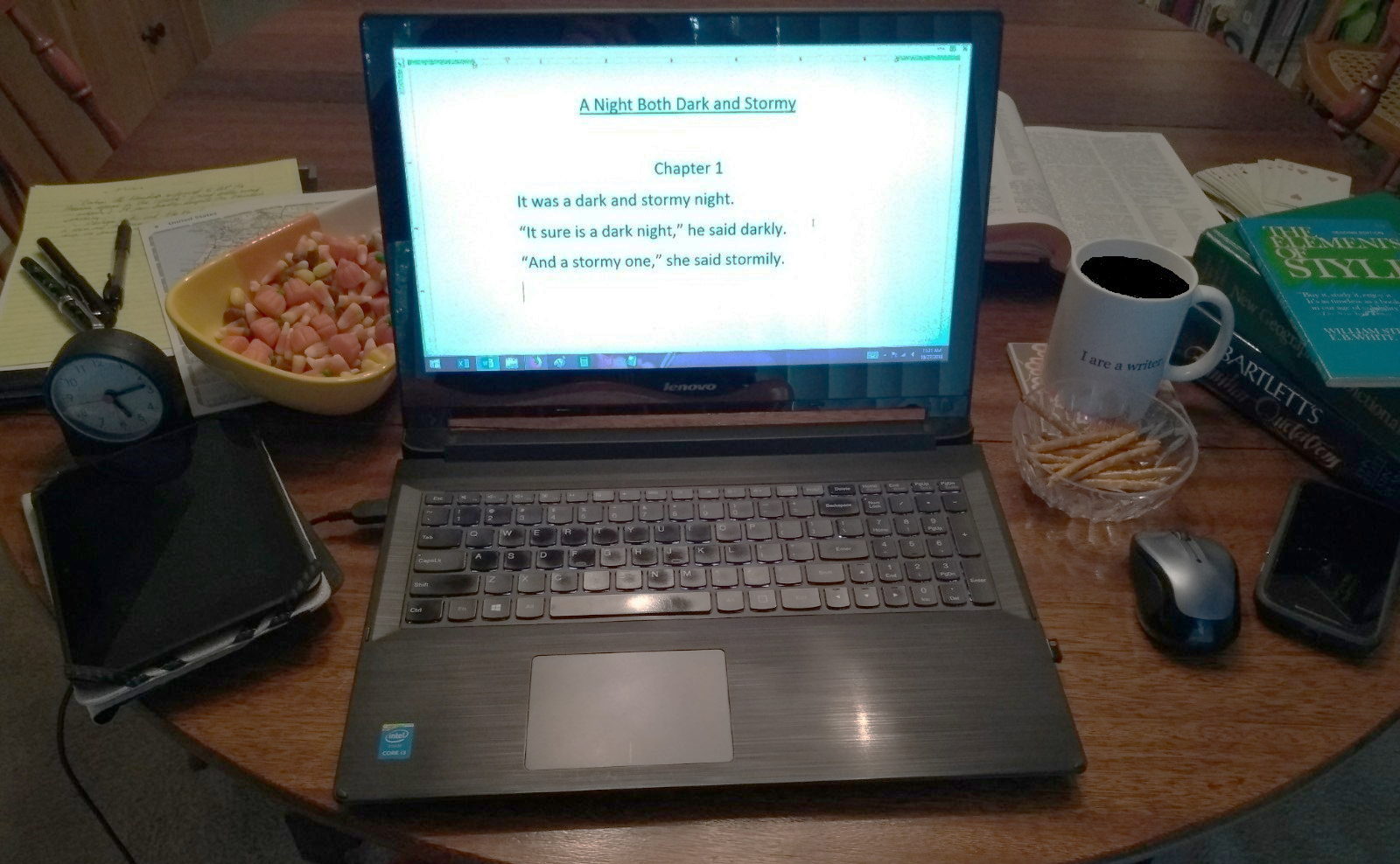As a fiction writer, you know distractions happen. You’re living a life, after all. But so what? Distractions are frustrating, but they don’t actually hurt the quality of your writing, do they?
Yes. According to a George Mason University research team led by Cyrus K. Foroughi, even short interruptions to creative work can worsen the output. As reported in the newsletter Fast Company, the GMU team conducted experiments involving subjects writing essays. Researchers didn’t interrupt Group 1, the control group, but did interrupt Group 2’s planning and outlining time, and interrupted Group 3’s writing time.

Independent graders judged the resulting essays. Graders rated Group 1’s essays best, Group 2’s essays second best, and Group 3’s essays worst.
This study considered only nonfiction essays. I’m unaware of any similar studies of the effects of distraction on fiction writers, but I suspect the effects would be similar.
For our purposes here, let’s assume the more you’re distracted during the writing of your first and subsequent drafts, the worse your story will be. If that’s the case, what can you do about it?
First, let’s divide distractions into two types: external and internal. External distractions are initiated by outside entities—other people, pets, or things. Internal distractions are initiated by you.
External Distractions
By definition, these are largely out of your control. But you can do some things to lessen the chances, frequency, and duration of them:
- Write in a quiet place.
- Tell others this is your writing time and ask them to leave you alone.
- Either abandon your phone, or put it in “airplane mode” thus stopping it from ringing or vibrating.
Internal Distractions
These are completely within your span of control, but paradoxically may be more difficult to reduce. Here are some ideas to consider:
- Buy a smart typewriter, such as FreeWrite or HemingWrite. These devices only let you write and save your work, not access the internet.
- Buy and use uninterrupted writing software (such as Writer, Draft, or Calmly Writer). These include features to help you focus on writing.
- Write longhand.
- Write in a clutter-free place, with no windows, clocks, phones, TV, etc. Perhaps you have access to a bare room, or large closet, (or even the bathroom).
- If working on a computer, resist the impulse to open new tabs, do research, check email or social media, etc.
Your Attitude Toward Distractions
Perhaps just the knowledge that distractions are killing your stories will make you more aware of them and less tolerant of them. Distractions are the enemy of good writing. Recognize what harm they’re doing; detect the onset of a distraction and refocus on your writing, if that’s possible.
And when he’s writing, never, never distract—
Poseidon’ Scribe
